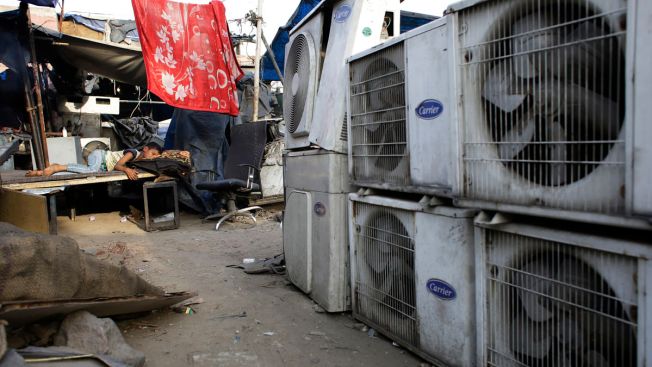Amnesty: Nauru won't investigate crimes against refugees
- by Leah Brady
- in Worldwide
- — Oct 18, 2016
Australia is isolating vulnerable people, including children, on Nauru, with the specific intent that they suffer, Amnesty International says.
17 de octubre de 2016, 16:05Canberra, Oct 17 (Prensa Latina) The revelation of new reports about the mistreatment of migrants in the arrest centre of the island of Nauru generated anti-government positions in Australia, The Sydney Morning Herald reported today.
The report, Island of Despair, released on Monday night, says the failure to provide a safe environment prevents many refugees from attending school and amounts to a serious violation of children's rights.
Amnesty New Zealand's executive director Grant Bayldon said it depicted lives that were driven to the brink.
Anna Neistat, Amnesty's senior director of research who travelled to Nauru, said the report provided direct evidence of Australia's responsibility for day-to-day decision-making, and that Australia should be held accountable for breaching the Convention Against Torture - with a remote possibility that individual government officials could be prosecuted under global law.
"We have uncovered evidence of shocking levels of physical abuse, sexual abuse, lack of medical attention, but it is really the despair, the mental health issues that are what comes through the most strongly and that what happens when you take away hope for people". Australian government is kill me step by step, slowly, slowly.
More than 1,200 asylum seekers are being held at the camp on Nauru or a similar detention center on Papua New Guinea's northern island of Manus, as part of Canberra's policy of intercepting people attempting to sail to Australia and seek asylum.
Hold meet on Turkey's interference, Iraq tells UN
Iraq and Turkey have for almost a year squabbled about the deployment of some 2,000 Turkish troops in the north of the country. Last week, the Turkish parliament renewed the mandate, drawing criticism from certain Iraqi political circles.
Amnesty carried out on-the-ground research between July and October ― an unusual amount of time to spend on an island that notoriously hard to access due to visa restrictions ― and interviewed 58 refugees and asylum-seekers.
But many say they now feel less safe than they did in detention. "The government here says they don't have any equipment to measure eyesight", an Iranian mother of two told Amnesty. But he also labelled some reports as "hype" and "false allegations" made up by people who wanted to get to Australia. "People's bodies and their health is one of the only recourses left to them".
An undated supplied image from Amnesty International claiming to show children playing near a fence at the country's Australian-run detention centre on the Pacific island nation of Nauru.
"But we should not forget the entire system is set up by the Australian Government".
Australia seeks to organise resettlement of the asylum seekers, Prime Minister Malcolm Turnbull has said.
While Amnesty acknowledged that the physical safety of refugees on Nauru was a matter for Nauru's Government, it said Australia could not absolve itself of responsibility because it was responsible for keeping the refugees on the island.
"The Australian authorities should come to the same conclusion, shut down the so-called processing centre on the island, and make a better use of taxpayers' money by recognizing that every asylum-seeker and refugee on Nauru has the right to come to Australia immediately".




